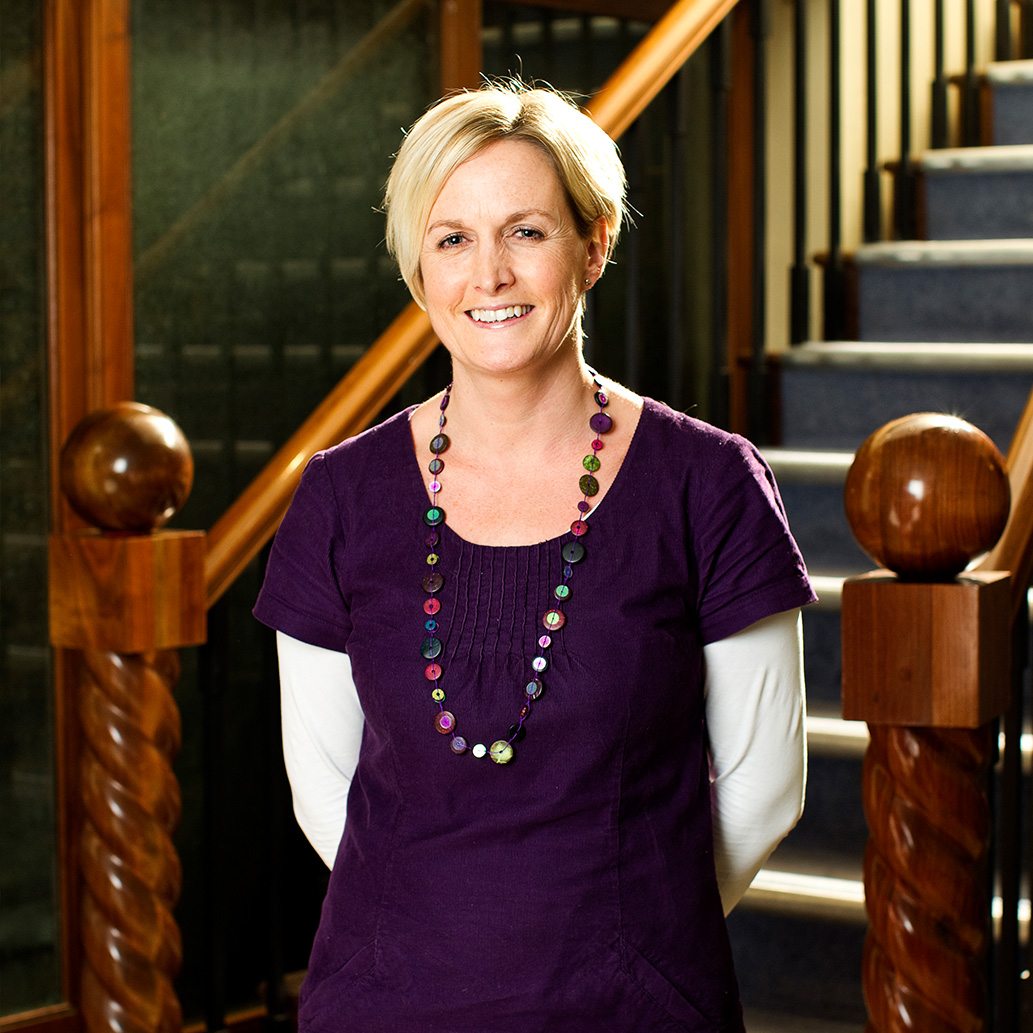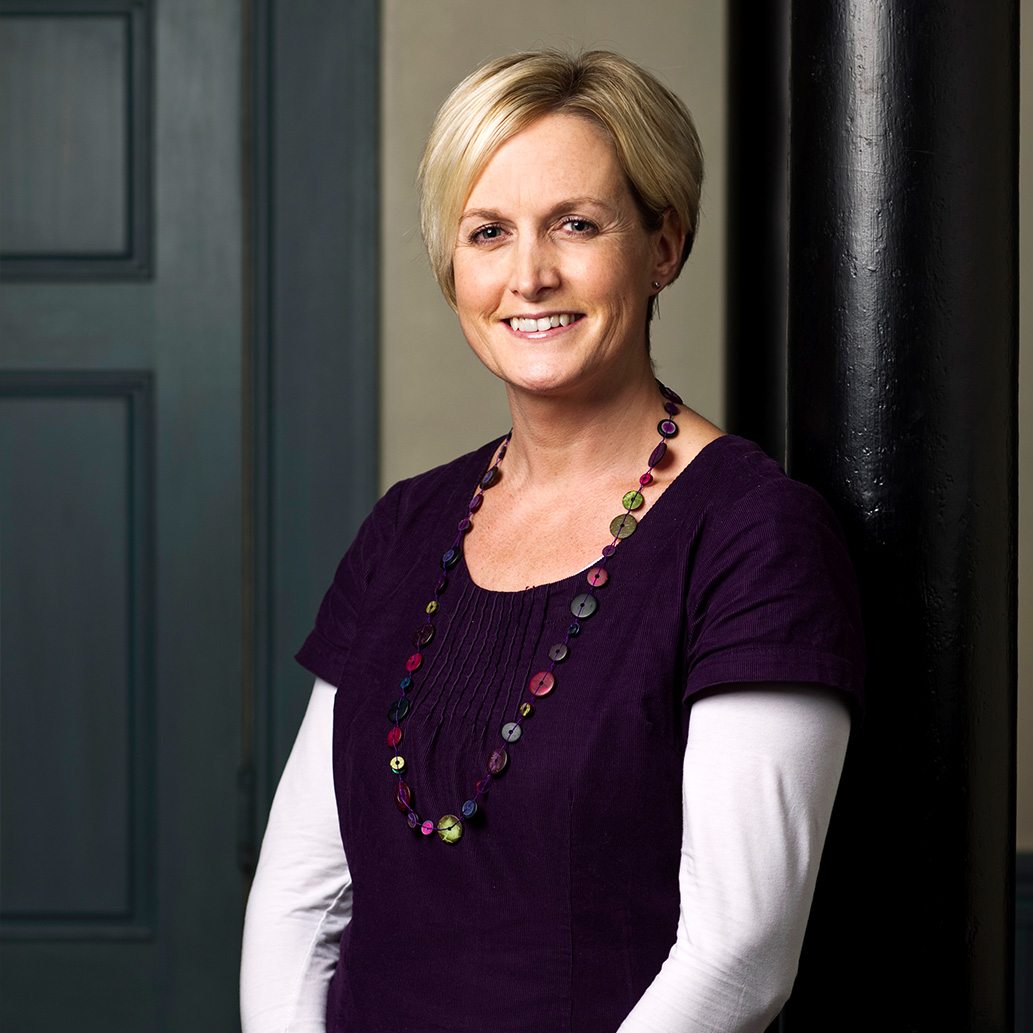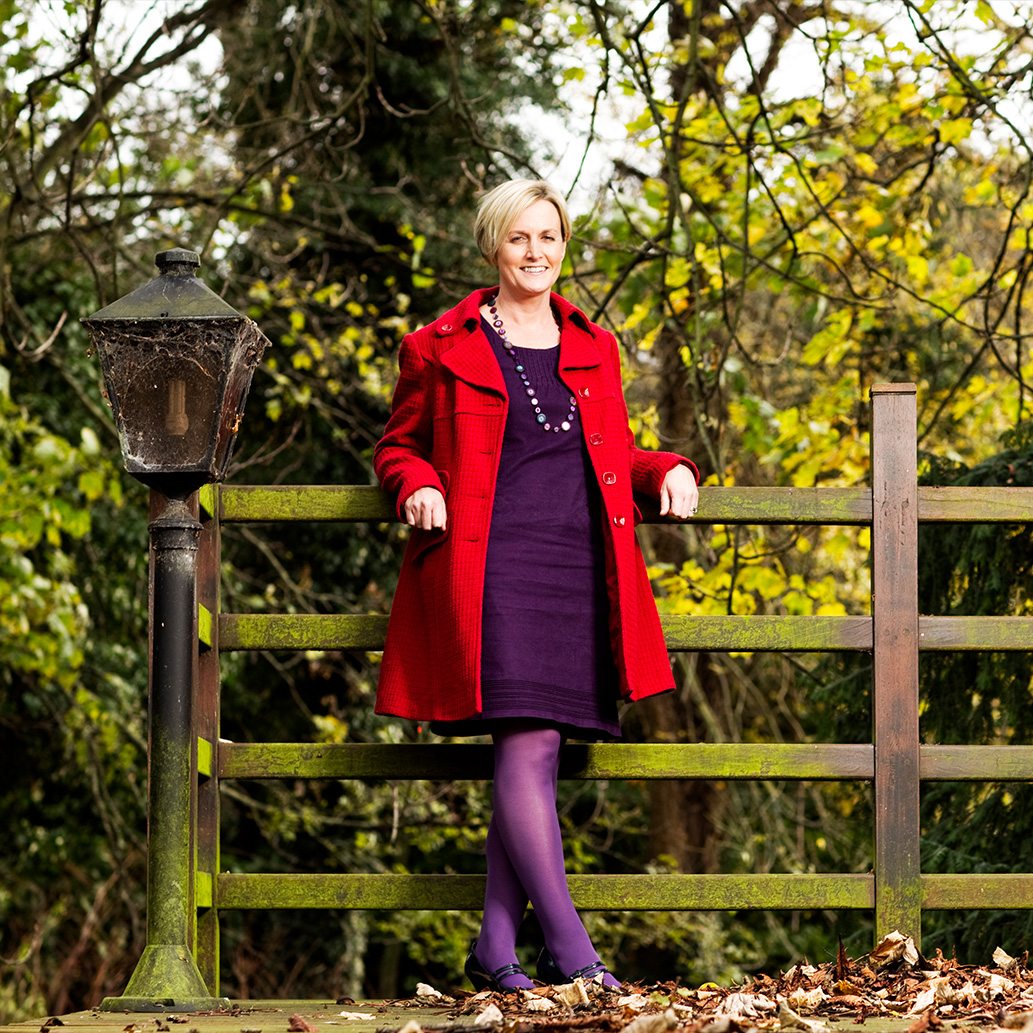It takes a certain calibre of person to have the humanity to listen to a complete stranger in a heightened state of distress, on a dark and wet winter night. And it has taken smart HR to make the Samaritans a highly optimised organisation that has the capacity to cope with today’s stresses and issues. Jason Spiller interviews, Claire Watt, Director of People.

Claire, give us an idea of your early life and why you decided on a career in HR?
I studied at Exeter University and completed a degree in Psychology. The area of my course that really interested me was occupational psychology, which involved applying psychology in the work environment, so I decided to pursue a career in HR straight after University. My first job was with Herbert Smith, a London-based law firm, and my role there was focused on recruiting qualified lawyers, working with partners and sourcing candidates, so it gave me a really good insight into resourcing and recruitment. After two and a half years in the role I decided to go travelling and had 18 incredible months seeing different parts of the world, and it was invaluable experience. During my travels I spent time working in Sydney and Melbourne.
When I returned to the UK, I worked for Habitat and Vinopolis (a wine tasting tourist attraction) in generalist HR posts, whilst completing my MA in Personnel and Development in the evenings at the University of Westminster. The role at Vinopolis was especially interesting as it was a start up business, so I gained a lot of experience in new business development. I then worked at Revlon before deciding to move into the charity sector as HR Director for the National Centre for Social Research, an organisation that conducts social research. I stayed there for five years, firstly as HR Manager and then as HR Director. I developed the HR department from a small reactive function, to a more proactive team providing support to over 400 staff in different locations. We also offered support on employment law regarding the 1500 freelance workers who conducted market research with members of the public.
In 2008, whilst on maternity leave with my second daughter, I decided I had to get a job nearer to home in Surrey as the three hour a day commute with two small children was too much. By coincidence I met the Director of Fundraising and Communications at Samaritans at my National Childbirth Trust group. She mentioned that there was a Head of HR role that needed filling, and something clicked. My grandparents were both Samaritans volunteers, so it was a charity that I grew up with and felt passionate about. Emotional support and wellbeing was something that I was interested in from my Psychology degree and an added bonus was that the office was only 15 minutes drive from my home! When I got the job, I was recruited part-time and was responsible for 110 staff mainly based at the Central Charity in Ewell. I have now been at Samaritans for three years and am now responsible for the HR, Facilities and Volunteering teams; I am part of the senior management team, working full-time! Moving the HR and Volunteering teams together under the same Director was a new way of working for Samaritans, but ultimately both teams are working to support the people who make Samaritans service possible, whether they are staff or one of our 18,750 volunteers.

Describe how the organisation is structured and operates?
We are a volunteer-led organisation which has a federated structure. This means that the organisation is led by the volunteers at every level, from the Board of Trustees responsible for the central charity, through to the volunteer management structure, which consists of Regional Representatives and Branch Directors, and ultimately to the volunteers on the phones who are delivering our 24/7 service. Each of Samaritans’ 201 branches across the UK and Ireland is a separate charity supported by the Central Charity. Many people find the enormity of our volunteers and the responsibility of the roles that they hold surprising, but it is what makes Samaritans tick, the passion and dedication of our volunteers, would equate to about £56m in annual salaries, if they were paid staff. A lot of staff that work here find the volunteer-led nature of the organisation very different to what they are used to, and it takes a while for staff to adjust, but when they do, they see that there are many benefits.

How has the organisation changed with the raised level of HR input and support, under your stewardship?
When I started working at Samaritans staff turnover was an extremely high rate, morale was low, and the CEO had recently left the organisation. Three years later, with a new CEO, senior management team (of which I am part of), fresh HR policies and investment in staff leadership, have reduced staff turnover rates to 17 percent. This is a really positive change and is in line with our objective to deliver a high performing and supportive workplace. One significant piece of work during this time was a review of our pay and grading structure. Staff did not have up-to-date, clear job descriptions, they were being inconsistently rewarded and we did not know how our salaries were positioned in the external marketplace. We therefore put a plan in place to ensure that all job descriptions were up to date and well written and we conducted a job evaluation process for all roles. We used a panel of trained employees from a variety of levels and roles across the organisation who evaluated all the roles, ensuring that the process was transparent and fair. Senior management and staff were fully involved in the process, so there was a good level of buy-in. It was important to make sure we kept staff up-to-date on the process.
Following this, we developed a new salary structure where we placed all roles in bands and each band had a salary range. The salary range was provided by Croners who market matched our roles with those in similar charities to ensure pay was fair and competitive. The aim now is to work towards linking salary increases to performance. A recent employee survey and feedback from our staff forum and union has shown that employees would find performance-related pay motivating and this would encourage a positive working environment where staff want to achieve objectives set in their performance development reviews. We are now confident that staff are paid fairly both internally and externally and that we have a transparent salary structure, so staff can clearly see how their pay can increase. Issues regarding salaries are now mentioned less in exit interviews and I am confident that this piece of work has contributed significantly to the reduction in the staff turnover rate over the last two years.
The employee survey that was carried out 18 months ago was the first one that had been conducted at Samaritans for many years. It was really interesting and overwhelmingly positive and we now have an action plan in place where we’ve got a clear understanding of what needs to be improved, streamlined and introduced to make the organisation more effective. The action plan was developed by a variety of staff from a cross section of the organisation to ensure that they were part of the decision making process. The survey revealed that the areas we need to concentrate on most are training and development and a more structured platform of communication. As a result we have centralised our training budget to allow for better use of our training funds, evaluated the management development programme in order to make improvements, and set up a staff forum. The staff forum allows people to discuss any issues affecting them and help them to find a solution. We also have a recognised union that works alongside the staff forum and regular updates are communicated to staff through a monthly newsletter that has been recently introduced.
Our corporate strategy for 2009 to 2015 is Taking the lead to reduce suicide. In order to achieve the goals of the strategy within this timescale we have divided the work up into five different programmes. The arm of the strategy that is HR-related is the people programme, and it is fantastic to have people that high up on the agenda within the organisation. Within this programme we are running several different projects; training and development, recruitment and selection, people management and good practice, organisational structure and people engagement and these projects apply to all our people, both staff and volunteers. This has helped us work more as one organisation and I think this has been a big step forward.
As a people watcher, what makes people tick in an operation like this?
Generally, there’s a massive passion for the cause. Everyone here is interested in making sure that people struggling to cope know about Samaritans and the fact that our volunteers are available round-the-clock for confidential support. About a third of the staff in the Central Charity are also volunteers, regularly doing night shifts and then coming into the office to do their paid job the next day. We want to spend our money wisely and recruit the best people for every job here. We have a well-known name and brand, but we can’t be complacent when recruiting. In the past we used to use a lot of recruitment agencies, but now generally, through our various communication platforms we recruit in-house, and we’ve managed this through the strength of our brand. As a result of this, we have reduced our recruitment costs by 50 percent over the past year. Recruiting directly does of course increase the workload for HR, but what we have gained is a better use of our budget and more control of the process.
Give us an idea of how you can assess people’s suitability for working for Samaritans.
Our volunteers are members of the public with a variety of different backgrounds and skills. This is the beauty of Samaritans service, people who call us are talking to everyday people, like you and me, they are not counsellors. We encourage people from all walks of life to apply to be volunteers. People think of volunteering for Samaritans as just being on the end of a telephone, but there are so many roles to suit people with different skills and time commitments. People can use their knowledge and expertise to support their local branch with fundraising, training, administration and publicity amongst other things. There is a recruitment and selection process that potential volunteers have to go through to ensure they have the right skills to be a Samaritan. From a staff point of view we have a robust recruitment process which involves structured interviews, presentations and tests. We try and be as honest as possible with people about what it is like working at Samaritans because it is often very different from what people are used to. We might be viewed as an easy option as we are an emotional support service, but the very nature of the subject matter we are dealing with on a day to day basis can make it difficult for some people. We are currently working on developing our staff induction programme to ensure that staff feel fully supported when they join us and this is due to launch in April 2012.
The listening aspect must be difficult to monitor. How can you judge the performance of somebody in the early hours of the morning, listening to a very desperate caller?
Night time is when Samaritans service is often very busy so carefully organised rota systems guarantee that night duties are allocated fairly, so someone doesn’t end up doing two overnight shifts in a row. Every volunteer is given plenty of notice ahead of their shifts to ensure it fits in with their life outside of Samaritans, and they can plan to get plenty of sleep ahead of a night duty. The effectiveness of on-going training is essential. Listening volunteers have their skills assessed and refreshed regularly, and they are supported by their shift leader and other volunteers in the branch. We also have strict policies and procedures that must be followed to ensure that service quality standards and the needs of every person calling Samaritans are met. The operations rooms at branches (where calls are answered) are fairly open plan, so other volunteers can support each other after they have taken a particularly difficult call, this is something we take very seriously. We also have to ensure that any of our staff who come into contact with difficult and distressing information are supported adequately. A lot of this is done through line managers and colleagues as they are most experienced at understanding the issues, but we also have an employee assistance programme that staff can use if they wish.
Do you think you are on track, in terms of the goals of the organisation?
Definitely we’re on the right track. We have a clear strategy and direction for the next three years and our new way of cross functional working is helping staff and volunteers work more closely together on projects. Our key strength is the people that run our service and our main focus is the people that call Samaritans and that’s at the heart of what we do. Whomever is in distress and in need of emotional support needs, we have to ensure that we have the right people, at the right time with the right skills, experience and capabilities to meet these needs. Without the dedication of thousands of volunteers Samaritans wouldn’t exist, and the support of the HR and Volunteering teams is an essential part of the service.
An example of Samaritans taking the lead to reduce suicide is our partnership with Network Rail. As part of this, volunteers go out to train stations and support people who may be in despair on the platforms. We have also delivered training to over 1000 railway staff including train drivers and platform staff that may come into contact with suicidal people. The partnership has been going for a year and a half and has contributed to an 11 percent reduction in rail suicides in the first year. With regard to the HR and Volunteering teams, both teams have come a long way over the past three years and are both much more proactive functions.
In terms of the next stages, how are you progressing with the planning?
We’re nine months into this new way of working and we are making good progress against our plan. The reason we have planned our work like this is, in the past, we had a silo working culture where there was little cross over of working or sharing of knowledge and experiences. Now we have a lot more crossover and integration. We want to do so many different things but with the limited money and time at our disposal we need to prioritise and focus on our priority areas.
How is Samaritan’s changing to meet the changing needs of members of the public and how is HR helping Samaritans do this?
We have a whole new generation using technology and social networking. To communicate with each other we’ve had to adapt from Samaritans being a telephone service, to where we are today, offering support via email and SMS. We are also reaching out to people online by developing partnerships with Facebook and Google. Our Facebook partnership is a third-party referral scheme whereby, if your friend puts up a status which indicates they are in emotional distress or suicidal, people can refer them to Samaritans through Facebook and then Samaritans will contact the individual anonymously.
From an HR perspective, we need to ensure we have the right people available at the right time. We have a lot more people calling in the night when they’re alone and feelings of distress can be exacerbated. We need to make sure we are there at the right time, reaching out to people before they get to the point where they might be considering suicide. In terms of turnover we lose a few thousand volunteers, but we recruit about the same amount back in to equal it out. We do however lose valuable skills that need rebuilding.
Would you say employers have a real duty of care for the mental wellbeing of employees?
I think there is a joint responsibility between the individual and the organisation. You have to look at the whole person and work with them, so they are able to do their jobs in the best way that suits them, but also meets the needs of the organisation. It’s a balancing act. I think you have to be aware all the time of all the stresses and strains on people and intervene as early as possible before an issue escalates. You’ve got to use common sense approach, you obviously need to meet the legal obligations, but also do more than that and see if you can marry up the individuals needs and the organisational needs, which is hard because you can’t always see the full picture.
Do you ever wonder why you got into HR, not to mention an organisation like Samaritans?
And do you still have a faith in HR to deliver what organisations need? I have absolutely no regrets about choosing HR as a profession. Every day is different as people are all different and there are constantly challenges to overcome which can be frustrating at times, but also hugely rewarding. With HR, the beauty is you can work in loads of different sectors and there are different perks to different industries, like in the cosmetic industry you get to try all the make up, but at Samaritans you really feel like you are making a difference to peoples lives.
If there was one HR achievement you would be happy to be remembered for here, what would it be?
Definitely the integration of the HR and the Volunteering teams under the one Directorate, so that we look at people as a whole rather than dividing them up into whether they are paid or not. Of course there are differences between paid staff and volunteers which need to be recognised, but ultimately we have to work together to support the people who need our services. Samaritans is all about people and the volunteers and staff are its biggest asset.
Tell me about Samaritans’ new workplace fundraising day Feel Good Friday.
This is a really exciting new initiative for Samaritans and is sponsored by healthcare provider Simplyhealth. Feel Good Friday aims to get people organising and taking part in ‘feel good’ themed activities and challenges at their place of work, in return for making a donation to Samaritans. Ideas for fundraisers range from playing ‘feel good’ music at work, to sponsoring their senior management to do something funny – like coming to work in fancy dress. Feel Good Friday takes place on Friday 3 February 2012 and we are asking employers and employees to visit the website http://www.feelgoodfriday.org to find out how they can raise vital finds for our charity.












